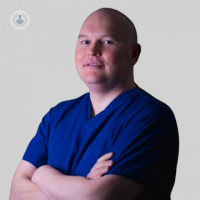What is dysphagia?
Dysphagia is the medical term for difficulty swallowing, which is a symptom rather than a condition or disease in itself. There are various conditions which can cause dysphagia, so seeing a doctor is always important in order to determine the cause of the dysphagia.
What are the symptoms of dysphagia?
Of course, the principal symptom is difficulty swallowing, or inability to swallow. However, other symptoms may present along with this, including:
- drooling persistently
- not being able to properly chew food
- having the feeling that something is stuck in your throat or chest
- coughing when eating, or drinking
- choking when eating, or drinking
- food being brought back up, either back through the mouth or through the nose
Dysphagia can, after a period, cause other related symptoms such as weight loss, or frequent/repeated chest infections.
When should I see a doctor?
If you experience difficulty swallowing, you should visit your GP so they can make a complete assessment of your symptoms and help you to understand why you are experiencing this symptom. Your GP can investigate and help you to rule out serious conditions such as
oesophageal cancer.
Which specialists treat dysphagia?
Dysphagia is treated appropriately depending on which condition is indicated. You may find that your GP refers you to either an ENT specialist (
otolaryngologist) or a
gastroenterologist. In some cases surgery may be a solution, in which case you will be referred to a surgeon to discuss options.
What causes dysphagia?
Dysphagia is most frequently caused by a related condition, such as:
- mouth cancer
- oesophageal cancer
- GORD (gastro-oesophageal reflux disease)
- conditions affecting the nervous system e.g multiple sclerosis
Dysphagia can also be caused by conditions which obstruct or narrow the throat, e.g
pharyngeal pouches, or occur after experiencing certain medical conditions, i.e
stroke.
It is important that you visit your doctor in order to receive the correct diagnosis and find a way to correctly manage your dysphagia.


















